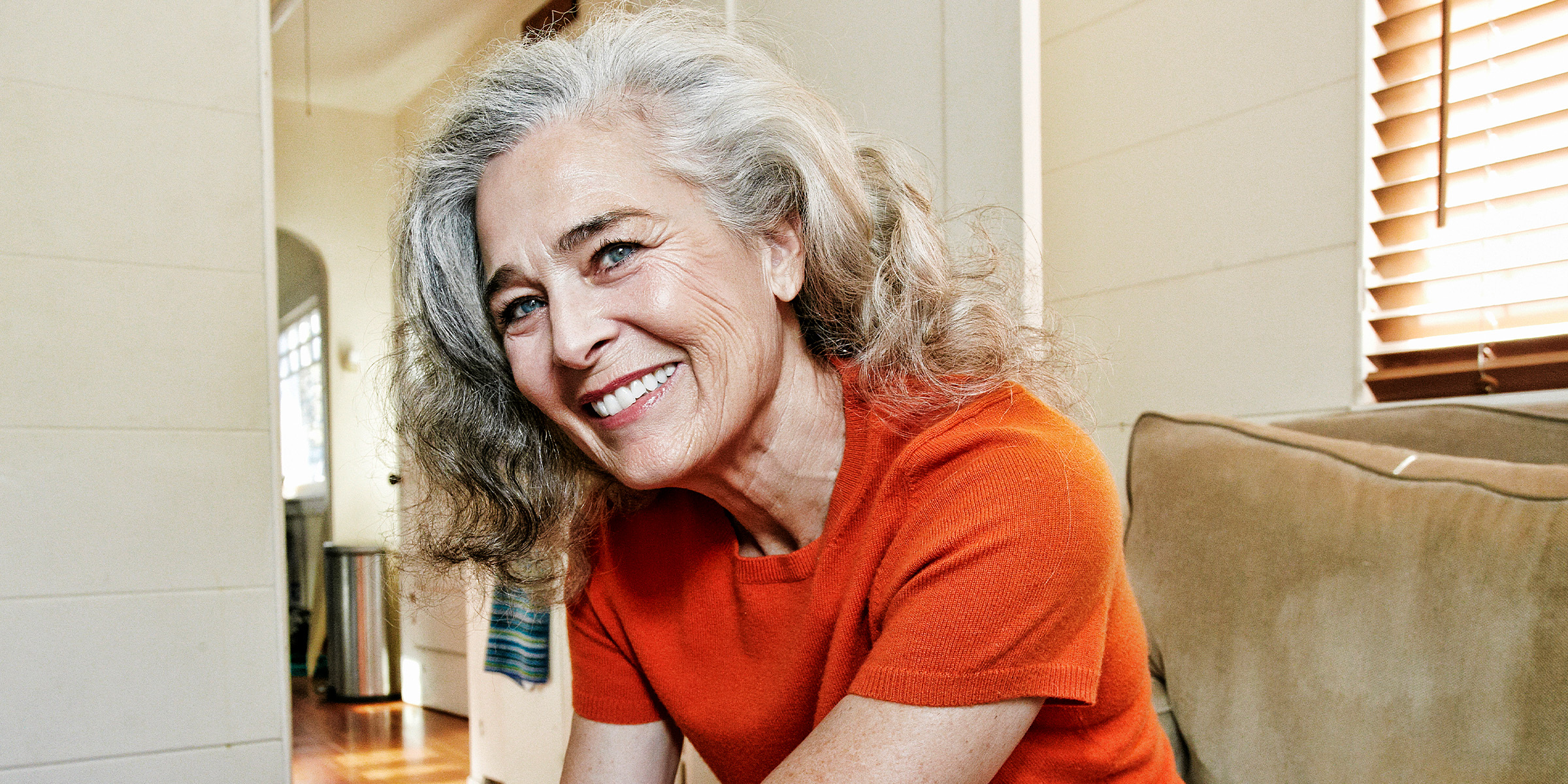
Surviving the Change: An Essential Guide to Menopause
Hot flashes, mood swings, restless nights — menopause can feel like your body has flipped a switch. But with the right strategies, it doesn't have to take over your life.
Menopause is one of the most significant biological transitions in a woman's life, but it's often misunderstood, overlooked, or brushed aside.
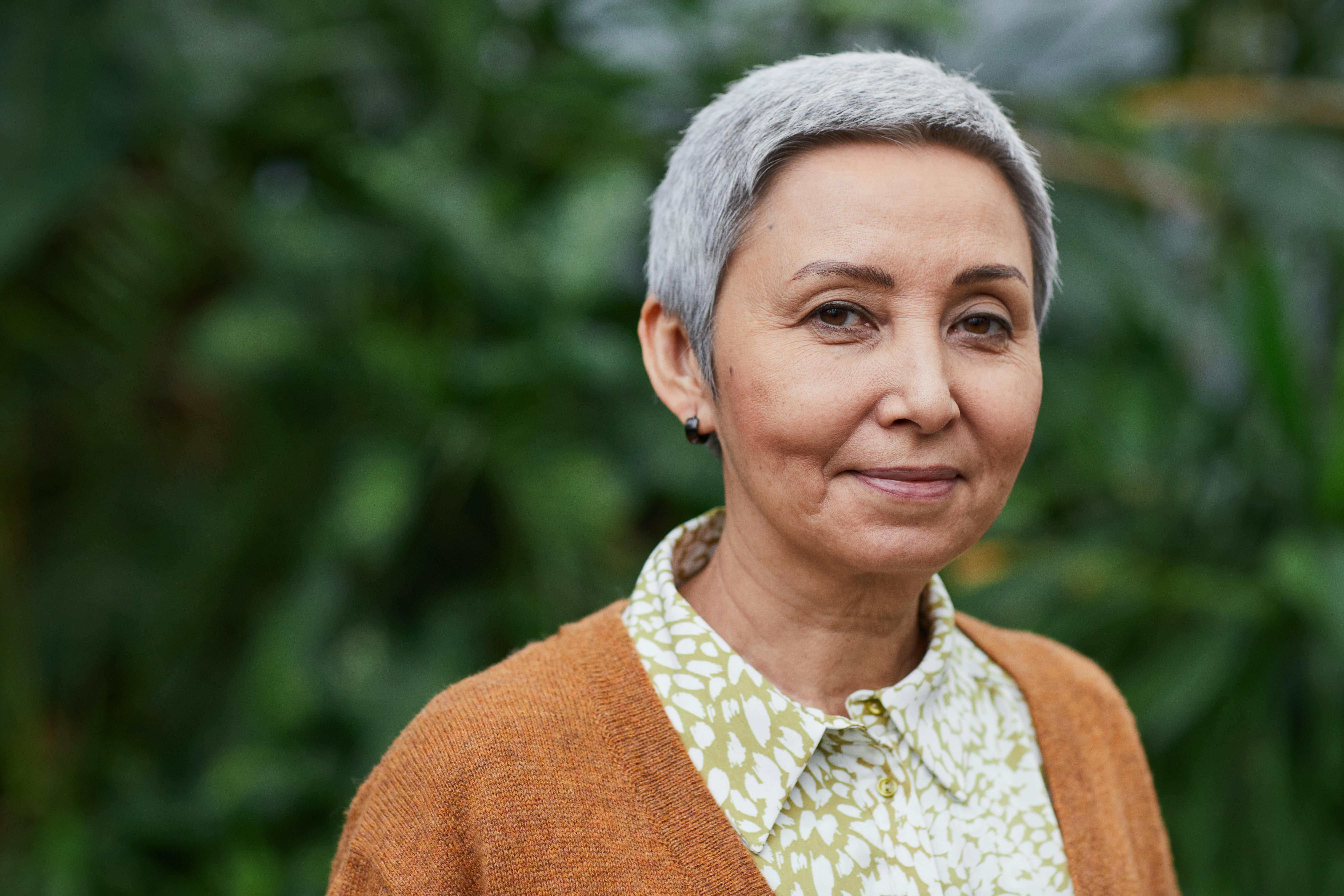
An older woman with a soft smile | Source: Pexels
Whether you're just beginning to notice symptoms or are deep into the experience, understanding what's happening and how to manage it can make a world of difference.
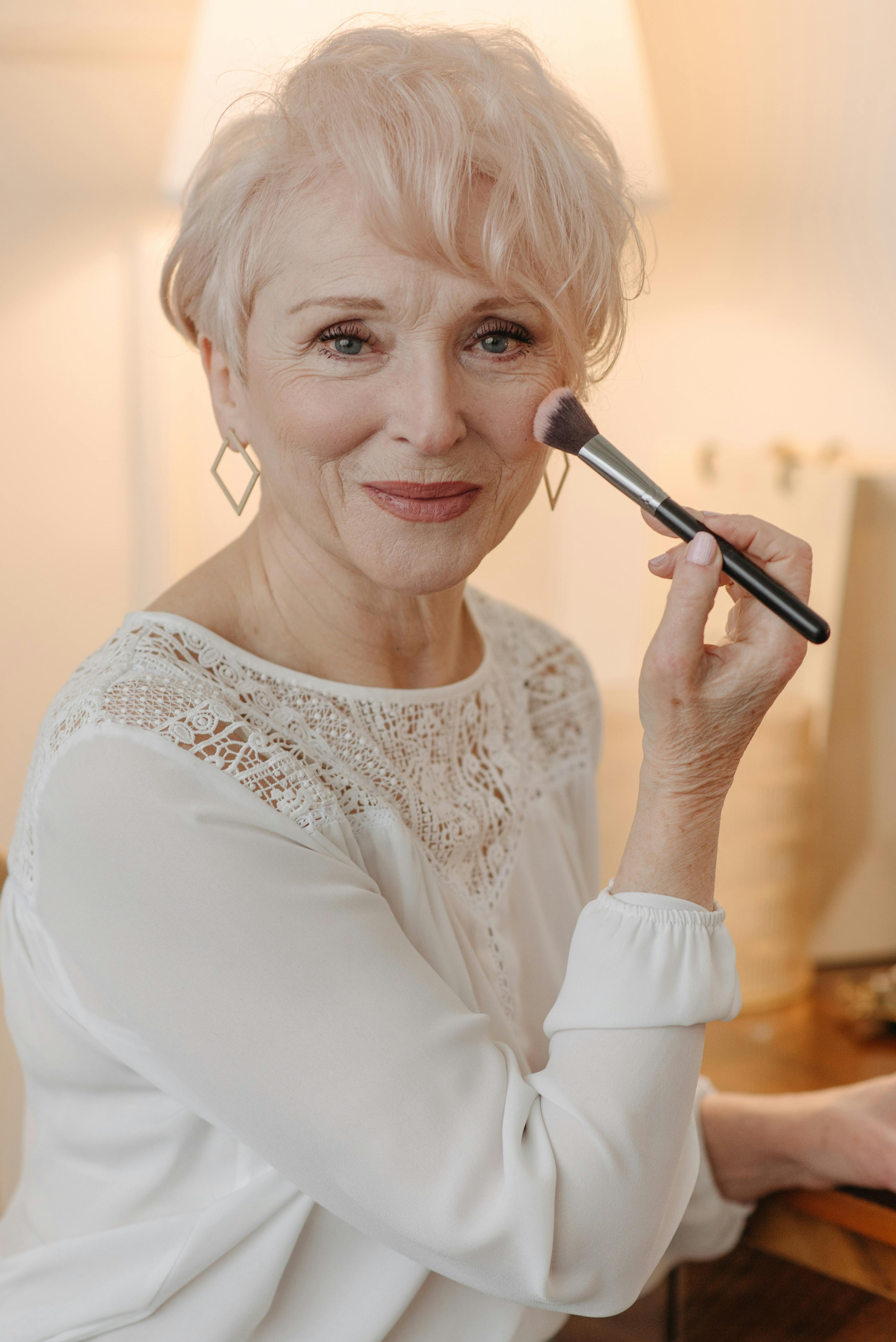
A woman applying makeup | Source: Pexels
What is Menopause?
Menopause marks a major transition in a woman's life, signaling the end of menstrual periods for at least 12 consecutive months. While it typically occurs around 52 in the United States, the natural onset age can range from 45 to 55 years or later.
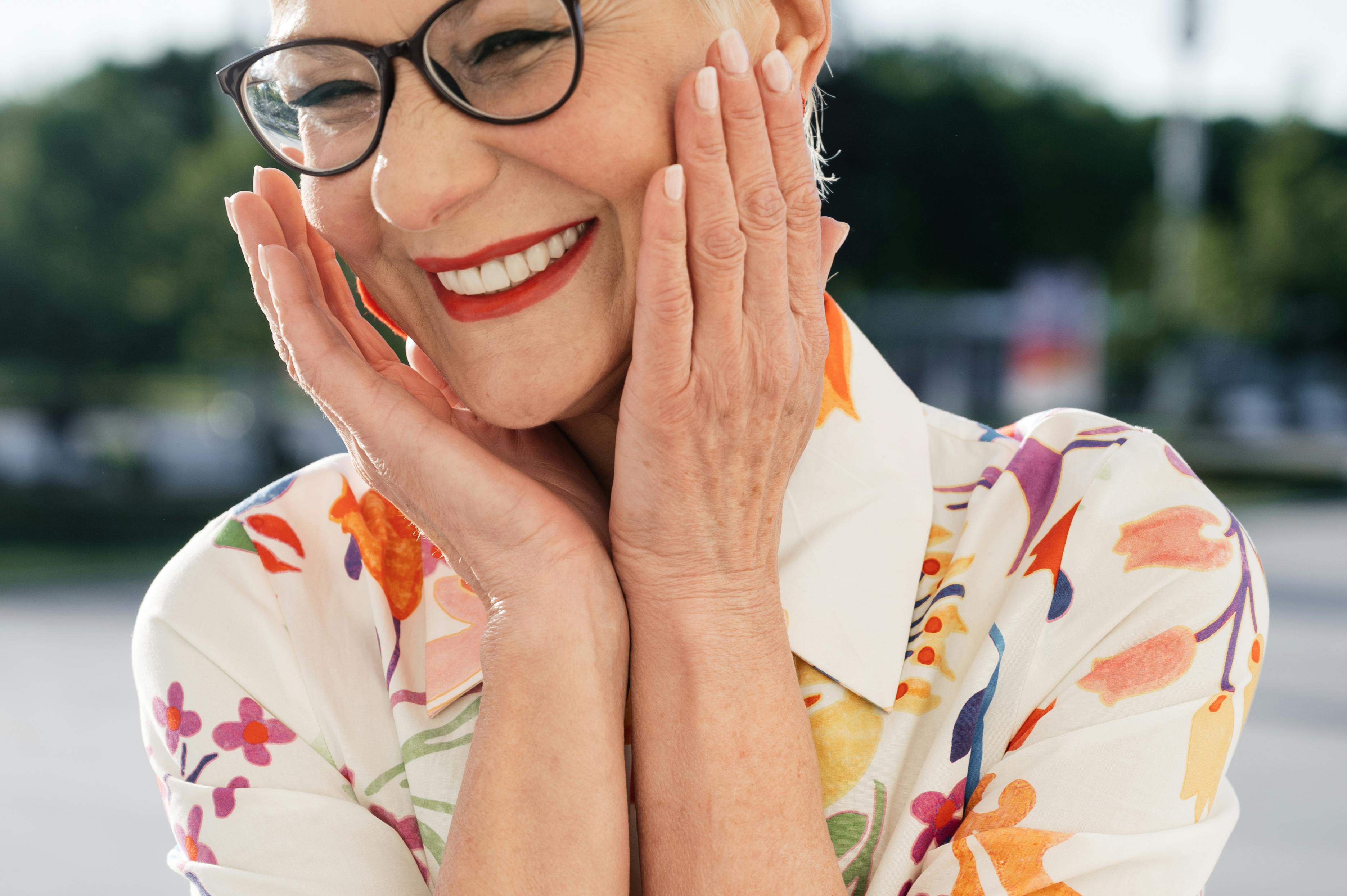
A woman smiling with her hands to her face | Source: Pexels
What Are Some Common Symptoms ?
Hot flashes are often the first signal. One moment you're fine, the next you're overheated, flushed, and possibly drenched in sweat. Night sweats can make sleeping a challenge, and when rest becomes unpredictable, everything else tends to follow.
Another common struggle is vaginal dryness. For many women, this can cause irritation or make intimacy uncomfortable. It's a sensitive topic, but an important one — there are solutions, and help is available.

An older woman | Source: Pexels
Emotionally, the changes are just as real. Mood swings, memory lapses, and a foggy mind can leave you feeling unlike yourself. You might feel irritable or even low. These shifts are normal, but you don't have to suffer through them alone.
Physical changes may show up in other ways, too — weight gain, drier skin, thinning hair, and occasional bladder leaks are all common. While these changes can be frustrating, they aren't permanent and can often be managed.

A woman writing | Source: Pexels
What Are Some Practical Ways to Cope?
- Dress cool and light: Choose breathable fabrics like cotton, and dress in layers so you can adjust as needed. Keeping a fan nearby and lowering the thermostat at night can also help ease hot flashes.
- Be mindful of your triggers: Spicy foods, caffeine, and alcohol may make hot flashes worse. Pay attention to what sets yours off.
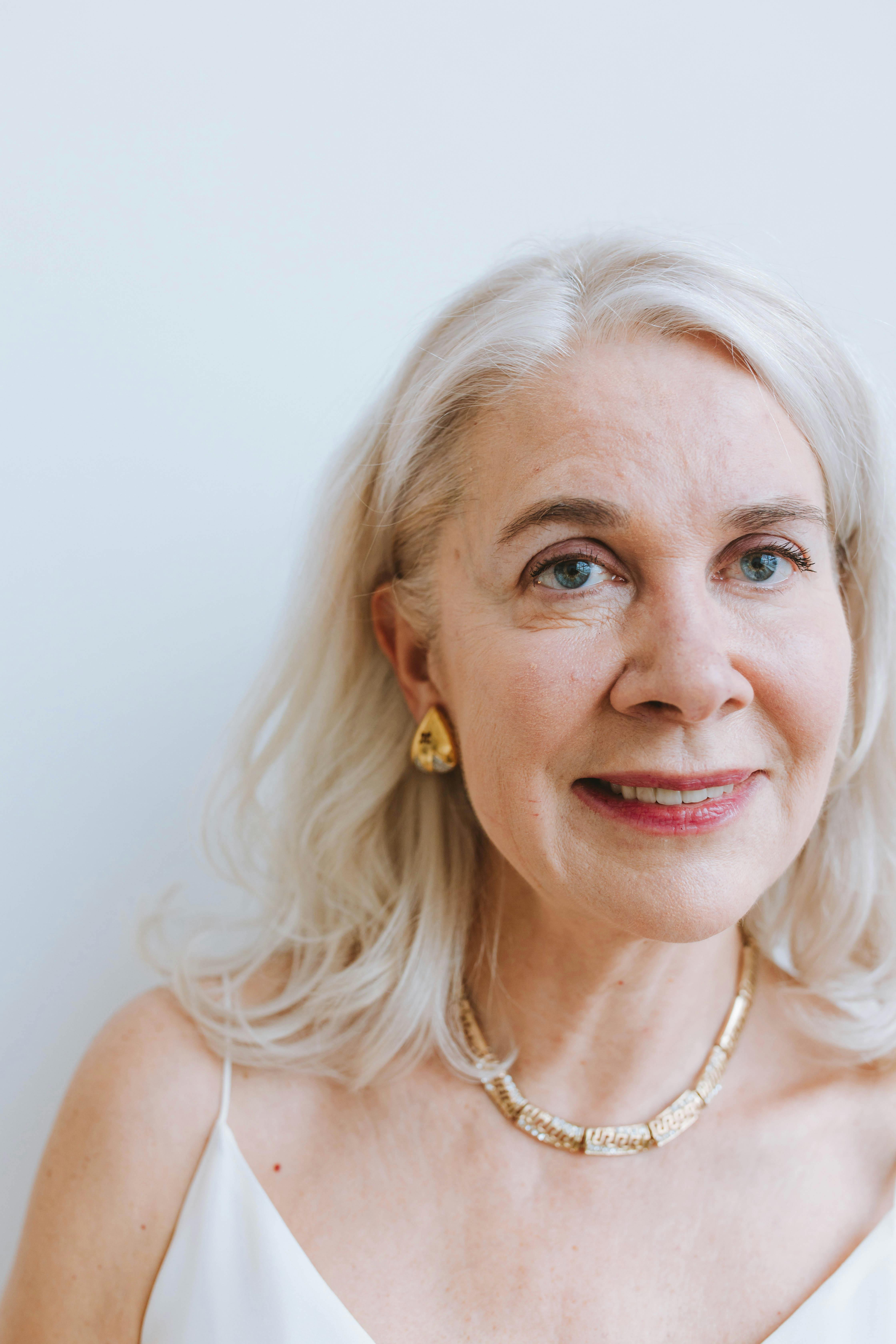
A smiling woman | Source: Pexels
- Try lubricants for comfort: Water or silicone-based lubricants and moisturizers can ease vaginal dryness. Staying sexually active — solo or with a partner — may also improve blood flow and reduce discomfort.
- Make sleep a priority: Avoid caffeine and alcohol late in the day. Try to keep a consistent bedtime, and if hot flashes keep waking you, focus on managing them during the day so you can rest at night.
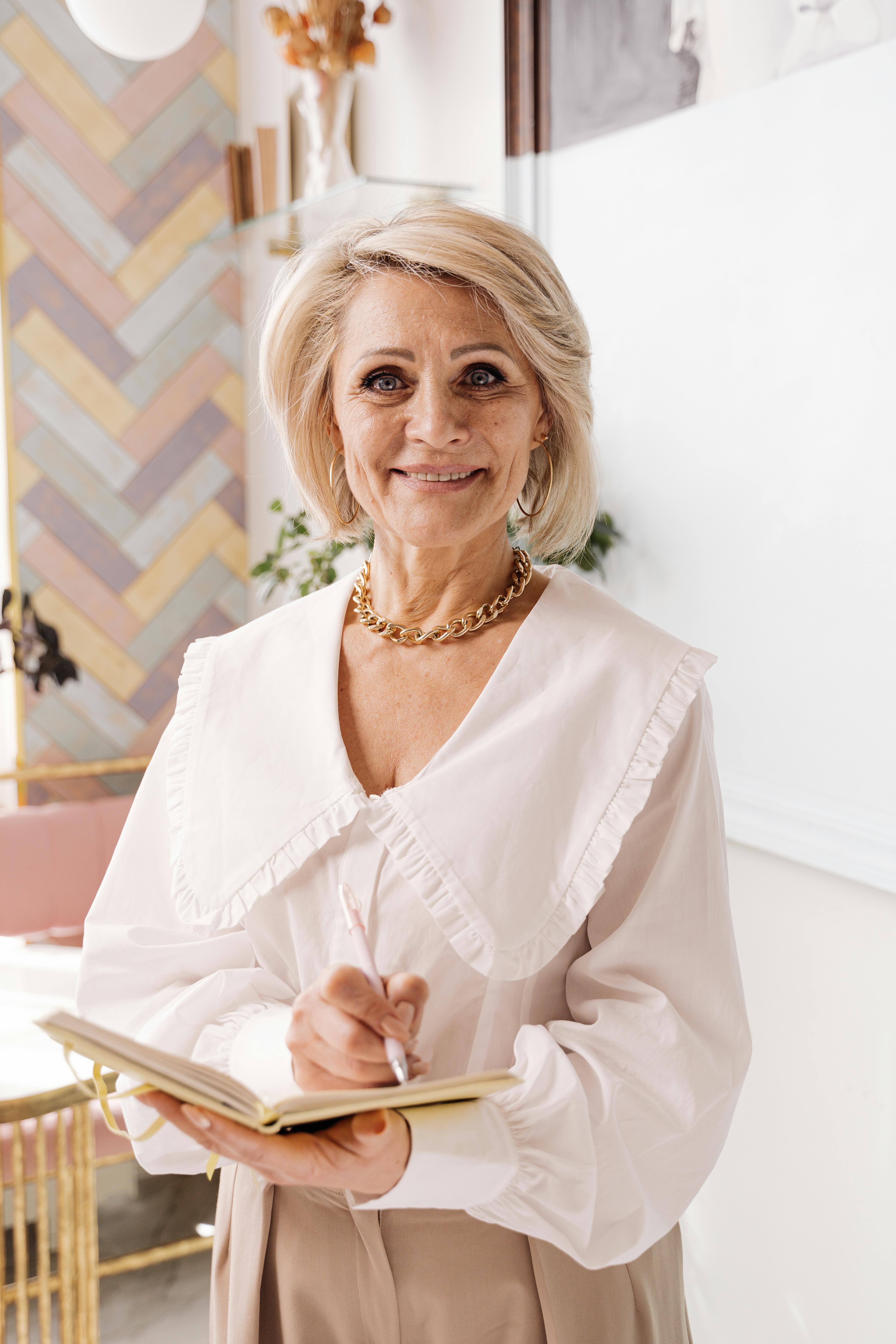
A smiling older woman | Source: Pexels
- Find your calm: Relaxation techniques like deep breathing, stretching, or even gentle massage can ease the stress that often accompanies menopause.
- Strengthen your core: Kegel exercises help build pelvic floor strength and may reduce bladder leaks.
- Eat with purpose: A diet full of fruits, vegetables, and whole grains — with limited sugar and saturated fat — supports overall health. Talk to your doctor about whether calcium or vitamin D supplements are right for you as well.
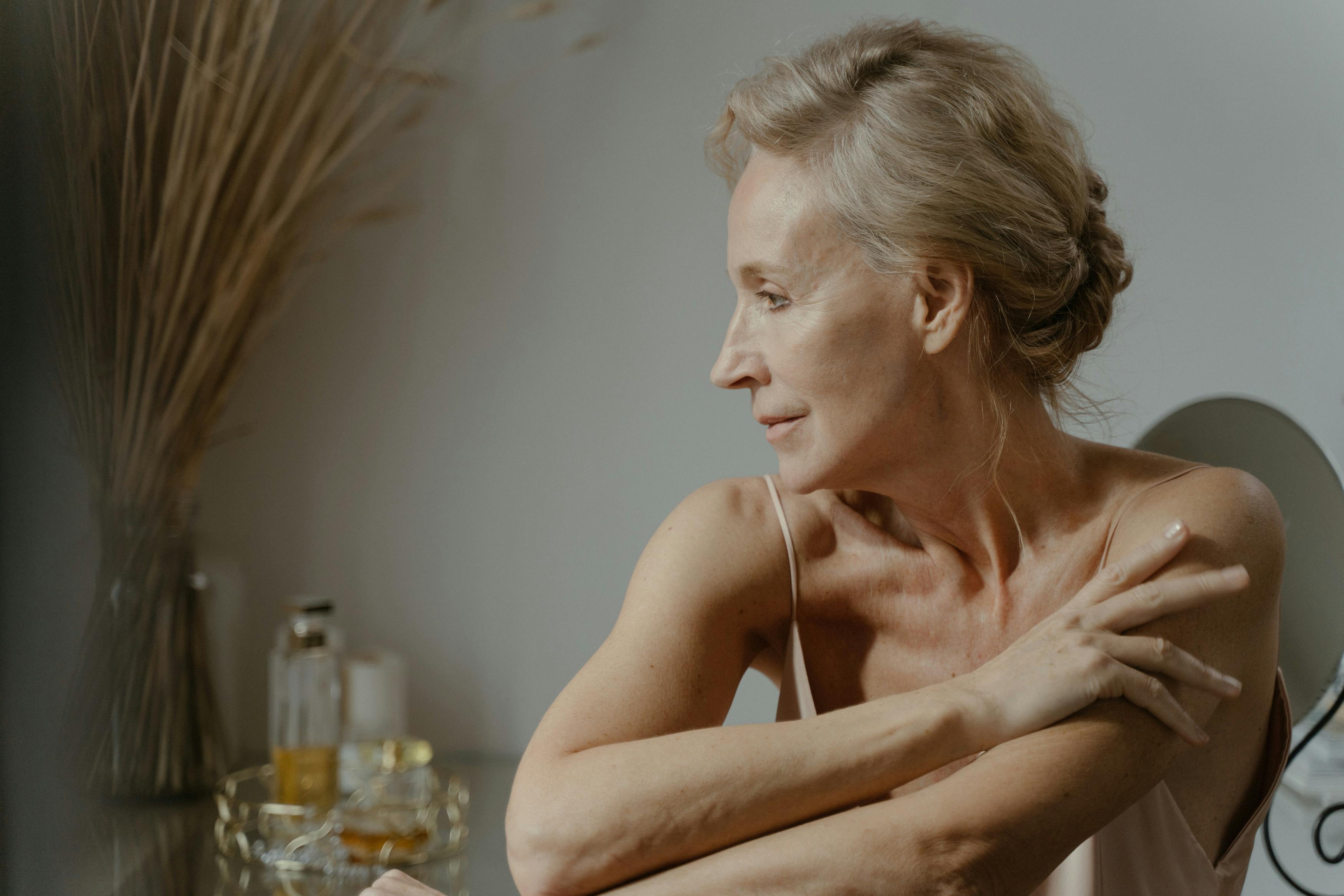
An older woman | Source: Pexels
- Watch your weight: Extra weight can intensify hot flashes. Losing even a small amount may help, and your doctor can guide you if needed.
- Put out the cigarette: Smoking not only worsens menopause symptoms, but also raises the risk of heart disease, stroke, cancer, and bone loss.
- Keep moving: Regular physical activity helps reduce the risk of many conditions tied to aging, including heart disease, diabetes, and osteoporosis.
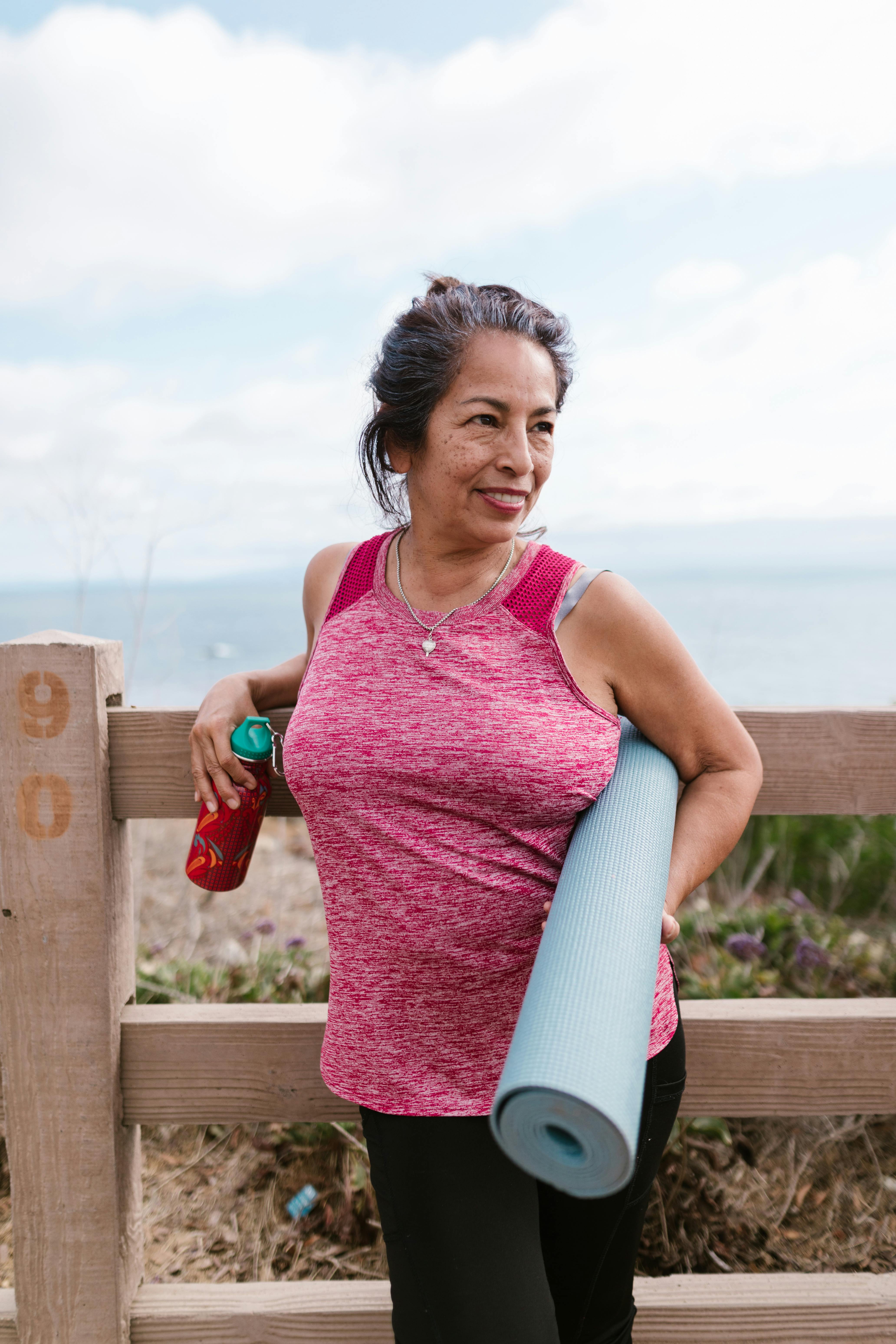
An older woman holding a water bottle and an exercise mat | Source: Pexels
Menopause is a personal journey, but it doesn't have to be overwhelming. With practical steps and the right support, it's possible to feel strong, balanced, and in control again.
And if sleep has become one of your biggest challenges during this transition, you're not alone. For more tips on how to get deeper, more restful sleep as you age, check out our guide to sleeping better after 60.
The information in this article is not intended or implied to be a substitute for professional medical advice, diagnosis or treatment. All content, including text, and images contained on AmoMama.com, or available through AmoMama.com is for general information purposes only. AmoMama.com does not take responsibility for any action taken as a result of reading this article. Before undertaking any course of treatment please consult with your healthcare provider.
